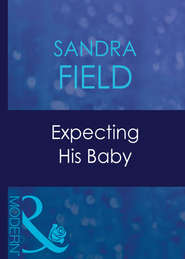По всем вопросам обращайтесь на: info@litportal.ru
(©) 2003-2025.
✖
Seducing Nell
Автор
Год написания книги
2018
Настройки чтения
Размер шрифта
Высота строк
Поля
She had been told it was rare to find caribou here in summer; they tended to migrate to higher ground in an effort to escape the flies. Her heart tripping with excitement, she crossed the road and carefully traversed the ditch. Caribou, she also knew, were relatively tame. With luck, she could get a closer look. Even a photograph.
The barrens had looked smooth and inviting from the road. But Nell had been in Newfoundland long enough to know that the smoothness was deceptive and the invitation a mockery; walking anywhere past ten feet from the highway could be extraordinarily difficult. Especially when laden with a heavy backpack. The first hollow she came to, she shucked off her pack and tucked it among some scrub spruce out of sight of the highway. After unzipping her smaller haversack, she loaded it with her camera, a couple of apples and her water bottle, and took off again. Her boots gripped the granite, slithered over clumps of wet grass and plunged into the dark brown peat, which sucked hungrily at her heels. She stopped to apply repellent, and saw with a jolt of pleasure that a yearling had joined the other caribou; Nell’s binoculars brought it so close she could see the tag ends of leaves hanging from its blunt muzzle.
Slowly, Nell lowered the binoculars. She was standing knee—deep in rose pink laurel blossoms. Flecks of mica in the granite sparkled and shone like tiny jewels; a sparrow was piping its small, clear song from a wizened spruce nearby. For a split second, she became a part of her surroundings, engulfed in a wave of happiness so pure it was as though she was bathed in the gold of the sun.
The moment passed, but the memory of it was hers. With a sigh of repletion, she counted a third caribou as it ambled into the open. It was a cow, like the other adult. Nell scrambled over a series of outcrops and jumped from rock to rock across a puddle. All three caribou had stopped to graze. She edged closer, keeping hidden from them as much as she could, until she reached a clump of feathery tamarack near enough to give her an excellent view. Crouching down, she made a seat for herself by a granite boulder and stretched out her legs, focusing the binoculars. Across the barrens drifted the click of caribou hooves; she was convinced she could even hear the animals’ jaws munching on the dry lichens. Their coats were glossy with health, the hair a blend of thick cream and a lustrous dark brown. Like café au lait, she mused, smiling to herself.
Time passed. Nell munched on an apple and took a couple of photos. And then, from the dark ribbon of the road, she heard the distant murmur of an engine. The vehicle that appeared was a cross between a Jeep and a van. To her intense annoyance, it slowed, pulled over and came to a halt. She saw light glint from what could only be binoculars.
She tucked herself lower, thankful that she was hidden from sight Scowling, she watched the driver get out and stretch. A man. She didn’t want to share her solitude with a man. She didn’t want to share it with anyone. Maybe once he’d had another look through his binoculars, he’d be on his way.
Instead, he shut the van door so quietly she didn’t hear the sound and headed across the road toward the caribou. Even from her faraway perch, she could see that he was limping slightly.
Go away, she thought fiercely. Get lost. Go to Caplin Bay, or Drowned Island, or St. Swithin’s. But don’t come here.
A sparrow flitted into a nearby shrub, momentarily distracting her. Rather horrified, she discovered that she was glowering at the man as though he was her mortal enemy. She wasn’t normally so antisocial. But then, nothing had been normal ever since that day, late in May, when she’d decided to clean up the attic of the house in Middelhoven where she’d grown up. In an old trunk pushed against the chimney, she had found a diary belonging to her grandmother, Anna, a shadowy figure whom she only remembered meeting once, long ago, when she was a little girl. She’d taken the diary downstairs and had sat up late that night reading it from beginning to end.
Only two months ago. It felt like a lifetime.
The man, Nell was glad to see, was struggling with the bog and the underbrush just as she herself had. Unfortunately, if he kept going in the direction he had chosen, he would end up tripping over her. In these vast stretches of wilderness, where people were so few and far between, it seemed a supreme irony that an intruder should shatter her peace and happiness. Damn him anyway, she thought vengefully.
He was closer now, near enough that she could hear the crackle of twigs from his passage and the rasp of his boots on the rocks. He was wearing jeans and a dark checked shirt, his sleeves rolled up to the elbows. His binoculars were slung carelessly over one broad shoulder. With a faint twinge of unease, she noticed his height, the strength latent in those shoulders and the grim lines of his face. No moment of perfect happiness for him. He looked like he was on his way to the funeral of his best friend.
She had to do something. She couldn’t let him fall on top of her. Not with that face. Definitely not the kind of man to find a chance meeting on the barrens amusing. She tensed, bracing her knees to stand up, wondering if she should clear her throat to warn him of her presence before she spoke.
And then he solved the dilemma for her. His foot slipped. He lurched forward, grabbing for the slender trunk of the nearest tamarack, his involuntary cry of pain raising the hairs on the back of her neck. As she instinctively twisted to help him, he began to swear, with quite astonishing virtuosity, in French.
His jaw was tight, and Nell could still see the deeply bitten lines of pain around his mouth. But her sense of humor, which had gotten her into trouble on more than one occasion, managed to ignore these symptoms. She half stood up and demurely, in French, added a couple of very crude expressions that she had learned in her younger days in Paris and that he had omitted.
The man whirled. Before she had time to even croak a protest, she found herself slammed on her back against the granite boulder, his body pinning her so hard that the rock dug into her spine. His hands bit into her shoulders, his face only inches from hers. His eyes were blazing like those of a man demented.
He’s mad, Nell thought blankly. Out of his mind. I’ve come all this way to be murdered by a psychopath.
But Nell hadn’t roamed Europe on her own without learning a thing or two; and she had never been one to lie down tamely to fate’s blows. Fueled by a mixture of sheer terror and adrenaline, she brought her knee up to his groin with lightning speed.
The man’s body wasn’t there. Her knee knifed empty air.
Before she could strike again, he had hauled her roughly to her feet, shaking her as if she were of no more account than a carpet to be beaten. With a truly impressive degree of rage, he snarled, “What the hell do you think you’re playing at, sneaking behind a tree like that?”
She should have said something conciliatory to calm him down. Rule one. Don’t fight back. Shoving against his chest with all her strength, Nell seethed, “Are you a raving maniac? How dare you attack me like that! I wasn’t sneaking—I was watching the caribou.”
“You little idiot! I could have killed you.”
He was still shaking her. She might as well have been yelling at the caribou for all the effect she was having, she thought furiously, and kicked him hard in the shins. “Let go!”
The toe of her boot connected with bone. He swore again—in English this time—his voice as rough as the granite against which he had flung her. But then, mercifully, he stopped shaking her, although his fingers remained clasped around her shoulders. In all honesty, Nell was just as glad, for she wasn’t sure she could have stood upright.
He took a deep breath and said flatly, “Hell and damnation.”
Nell stayed very still, watching as the light of sanity returned to eyes so dark a blue as to be almost black, feeling the shudder rip through his body as though his frame were her own. Her anger vanished, and with it her terror. Briefly, the man closed his eyes, swallowing hard. His shoulders sagged so that she felt the weight of his hands on her shirt. The weight and the warmth, a warmth that was oddly disturbing.
He was no madman. Of that she was sure. Although she couldn’t have said where that certainty came from.
She said with a lightness that very nearly succeeded, “It seemed a pity that you’d left out a couple of quite effective swearwords. French can be so expressive, can’t it? And I really was about to stand up and speak to you when you fell.”
His eyes flew open, all his anger rekindled. “Goddammit, do you have to remind me?”
“Goddammit, do you have to yell at me?”
“You’re yelling, too!”
“Little wonder,” she snorted.
The sun was slanting across her face, shadowing her cheekbones and her straight nose, dusting her skin with gold. He took another of those deep, shuddering breaths; his eyes were roaming her face as if he had never seen a woman before, as if he was striving to commit each one of her features to memory.
Nell stood very still, shaken by the intimacy of his gaze, feeling as if every secret she had ever held was exposed to him. Then he said quietly, “When I was a kid, we used to pick bunches of blue—eyed grass to give to the teacher. Have you ever seen it? The flowers are like little stars that are blue and purple at the same time. Your eyes remind me of them.”
“Oh,” said Nell, feeling her cheeks grow warm and trying very hard to repress the knowledge that he was easily the most attractive man she’d ever come across.
Although that admirably succinct North American word “hunk” would express her opinion far more accurately.
With an exclamation of self—disgust, the man dropped his hands to his sides, and the mood was shattered. “You saw the caribou from the road, too. That’s why you were hidden.”
She had forgotten about the caribou. Glancing toward the bluff, she whispered, “They’ve gone.” Across her face flitted regret and the memory of that moment of shining happiness.
He said heavily, “I scared them when I fell.”
Her nostrils flared. “I expect you scared them when you jumped me. A starving wolf’s got nothing on you.”
“There aren’t any wolves in Newfoundland.”
“A bear, then,” she said pettishly.
“Bears don’t starve in the summertime.”
There was a gleam of humor deep in his dark eyes. “Hunk” also began to seem a very wishy—washy concept. Devastating? Gorgeous? Sexy? Any or all of the above? Nell said, “It might be nice if you could bring yourself to apologize. I don’t usually expect total strangers to wrap me around a chunk of granite and then shake me out like an old rug.”
“Yeah…”
As he hesitated, Nell saw that any approach to humor had fled from his features. It was interesting that “handsome” wasn’t one of the words she had come up with, she mused. His face was too rough—hewn, too individual for mere handsomeness. Too used, she added thoughtfully. Hard used. Ill—used. And for rather a long time, unless she was mistaken.
He said in a staccato voice, “I—hurt my leg a couple of months ago. I’ve done very little hiking since then. It drives me nuts when I fall down like a two—year—old.”
“Real men don’t trip over rocks?”
“Real men can at least stand on their own two feet!”
Lines of frustration had scored his face from cheek to chin. His mouth was clamped shut. He had a beautiful mouth. Nell said hastily, “Keep going—apologies at some point are supposed to include that ordinary little phrase, ‘I’m sorry.’“











